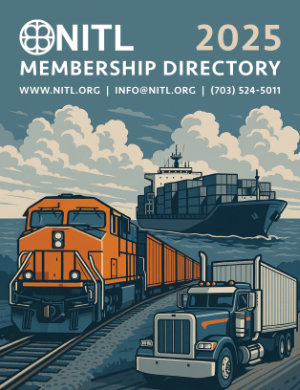On October 7th, the Surface Transportation Board announced its highly anticipated proposals on how the agency would address demurrage and accessorial charges.
Over three decisions, the Board has said the STB will continue “its efforts to improve dispute resolution processes, promote transparency, and make the agency more accessible.”
STB Decisions
- EP 757: Proposed Policy Statement on Demurrage and Accessorial Rules and Charges: provides information on principles the Board would consider in evaluating the reasonableness of demurrage and accessorial rules and charges. The proposed policy statement addresses a number of key areas of concern raised by stakeholders, including: free time, bunching, overlapping charges, invoicing and dispute resolution, credits, notice of major tariff changes, and warehouseman liability.
The Board expects this policy statement will:
-
- Facilitate more effective problem solving between railroads, shippers, and receivers
- Assist with prevention of unnecessary future issues
- Enable more efficient and cost-effective resolution of issues when they do arise
- EP 759: Notice of Proposed Rulemaking: Demurrage Billing Requirements: the Board is proposing to enhance the transparency and accuracy of demurrage invoices by requiring Class I railroads to include minimum information that would assist shippers and receivers with verifying charges, determining who is responsible for delays, and evaluating whether and how they can expedite their handling of cars. The Board also proposes a requirement that Class I railroads send demurrage invoices directly to the shipper instead of the warehouseman, if so agreed upon by the warehouseman and the shipper.
- EP 760: Notice of Proposed Rulemaking: Exclusion of Demurrage Regulation from Certain Class Exemptions: the Board proposes to clarify its regulations governing exemptions for certain miscellaneous commodities, such as paper products and steel scrap, and boxcar transportation to ensure that they clearly reflect longstanding court and agency rulings that these exemptions do not apply to the regulation of demurrage. The Board also proposes to make the exemption for certain agricultural commodities consistent with those exemptions by revoking, in part, the exemption that currently covers certain agricultural commodities so that the exemption does not apply to the regulation of demurrage.
These decisions were in response to a May STB hearing where numerous parties, including NITL and many NITL members, shared concerns and challenges related to recent changes implemented by Class I railroads.
Comments to each of the proposals are due by November 6, 2019, and replies are due by December 6, 2019. NITL is reviewing the decisions and weighing how we will respond. We will provide further over the next few weeks.
More Reading:
Proposed Policy Statement on Demurrage and Accessorial Rules and Charges
NPRM Demurrage Billing Requirements
NPRM Exclusion of Demurrage from Certain Class Exemptions
NITL Testimony: May 2019 hearing on demurrage and accessorial charges




